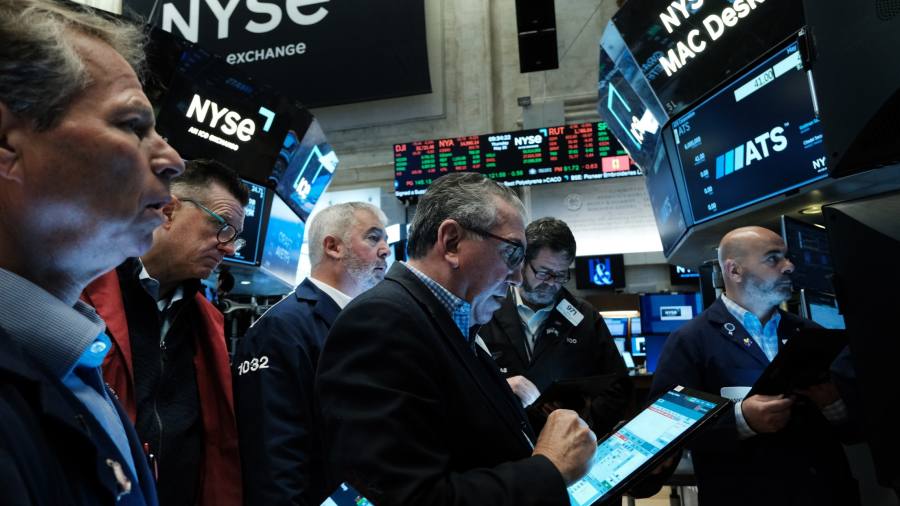Once bitten, twice shy? Retail investors who got burnt by the bear market in 2022 are sitting out the sharp rally in US equities this year. The Nasdaq Composite has gained more than 20 per cent since the start of January. Elsewhere, the S&P 500 has bounced back from March’s banking turmoil to trade up 9 per cent for the period.
Having bought beaten-down shares with a fury at the start of 2023, appetite from the do-it-yourself crowd has waned. Retail trading orders in stocks and exchange traded funds now account for less than 16 per cent of all trading flows, according to JPMorgan Chase. That is down from a peak of 23 per cent in late January.
Separate data from Vanda Research show a similar pullback. Net inflows into US equities from retail investors have averaged about $874mn a day over the past month. That is the lowest level since November 2020 and is down from a record $1.5bn a day recorded in February.
Retail investors have plenty of reasons to tame their animal spirits. Those who had aggressively bought into the sell-off in regional banking stocks in March are still nursing a loss on their investments. Moreover, the market rally appears to be driven by a handful of megacap companies such as Apple, Microsoft and Nvidia. The risk is that should they stumble, so will the broader benchmark indices.
More individuals are keeping their money in cash or money market funds, which are offering yields not seen for much of the past decade. Yields have climbed on average to 4.85 per cent from 0.02 per cent at the start of 2022, according to a Crane Data index. Retail investors account for 36 per cent of the record $5.34tn in assets invested in US money market funds, Investment Company Institute data shows.
Stocks remain expensive by historical standards. The S&P 500 is trading at about 19 times forward earnings, compared to its 10-year average of 18 times. US equity markets could struggle to build on the rally in the second half of the year. Do not be surprised if more companies announce share buybacks as a means of supporting their own stocks.
Read the full article here




